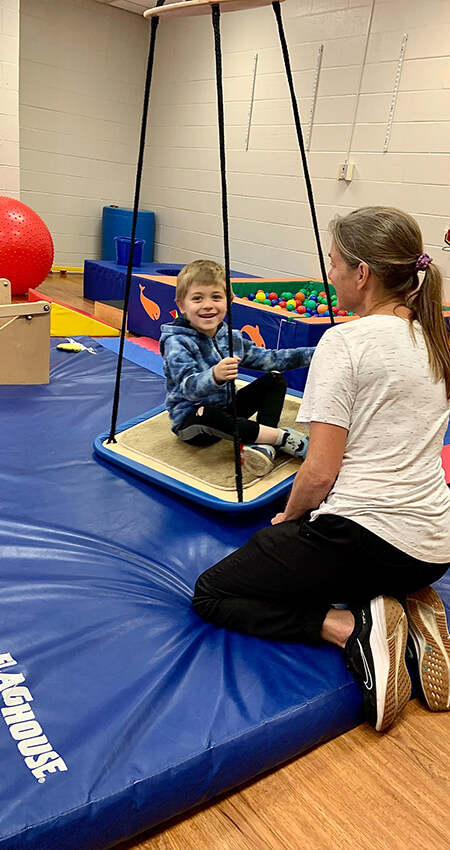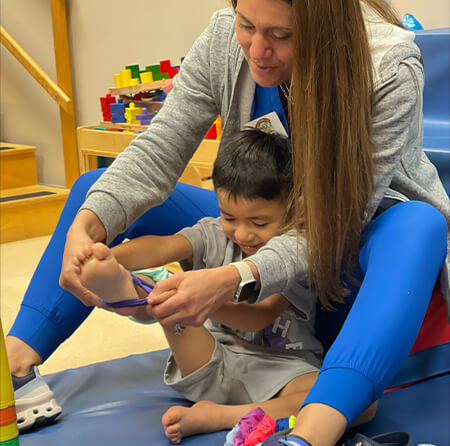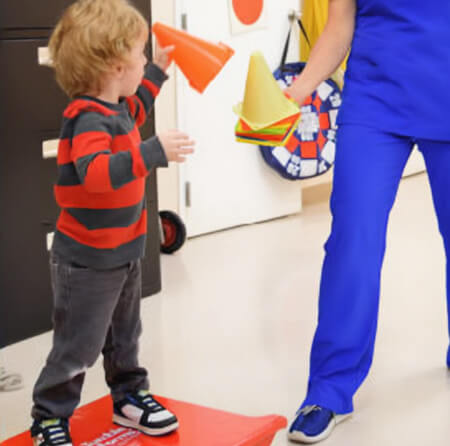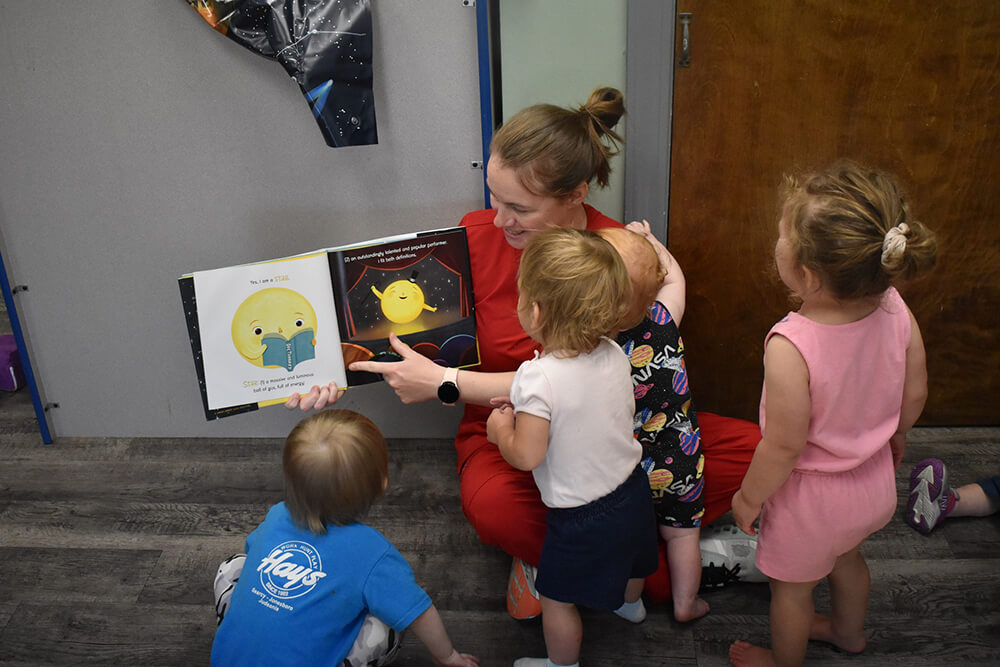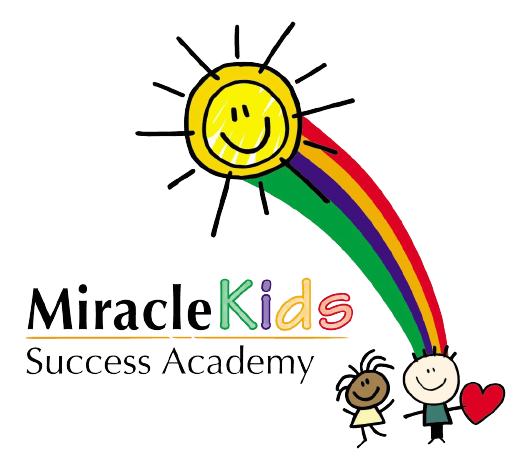Pediatric
Therapy Services
The term “occupation” is often associated with jobs performed by adults. However, there is a broader view of “occupations” that include children’s activities, such as playing, learning, and socializing with friends. At Miracle Kids Success Academy, we help children learn these necessary skills so their transition into adulthood becomes a path to an independent and rewarding life. Our pediatric occupational therapists provide evaluation, intervention, and consultation in the following areas:
- Fine motor skills (grasping, cutting, handwriting, etc.)
- Organizing and planning motor skills
- Self-help and hygiene (feeding, dressing, washing hands, brushing teeth, etc.)
- Play and socialization skills
- Vestibular (movement and balance) skills
- Visual perception skills
- Hand-eye coordination
- Sensory integration and modulation
- Adaptive equipment modifications
- Environmental adaptations
Our pediatric physical therapists assist children in developing and enhancing mobility so they may safely participate in activities at home, in the classroom, on the playground and in the community. We address skills that help children take part in important movement activities such as crawling, walking, running and playing games. Additionally, our therapists teach children how to navigate mobility aids, such as wheelchairs, walkers and other supports, safely in various environments. Our pediatric physical therapists provide evaluation, intervention and consultation in the following areas:
- Gross (large) motor development
- Muscle tone and strength
- Posture/postural control
- Pre-gait and gait training (gait refers to the pattern of limb movement)
- Locomotion patterns (movement and travel)
- Neuromuscular function
- Endurance
- Body alignment
- Environmental adaptations
- Positioning and mobility of wheelchairs, walkers and other mobility aids
- Splinting/bracing/orthotics
Communication is one of the most fundamental and important of human skills. It is essential to learning, playing, social interaction and creating valuable relationships. Impaired communication can affect every aspect of a child’s life. At Miracle Kids Success Academy, we provide strategies and resources that will assist with daily communication with the child’s family members, teachers, and friends. Our pediatric speech-language pathologists provide evaluation, intervention, and consultation in the following areas:
- Sound production (articulation, how clearly speech is produced)
- Receptive language (understanding language)
- Expressive language (communicating wants and needs)
- Pragmatics (how language is used in social contexts)
- Voice (quality, pitch, and loudness)
- Fluency (stuttering)
- Dysphagia (sucking, feeding, and swallowing)
- Oral motor (movement of tongue, teeth, lips, and jaw)
- Feeding Difficulties
- Augmentative and alternative communication (use of pictures or devices to communicate)
Our BCBA’s, RBT’s and behavioral therapist’s assist children in increasing skills to better their ability to learn and decrease challenging behaviors that are interfering with their ability to learn in the classroom, at home and in the community. We address skills that help children communicate, participate in the classroom and daily activities and interact with peers. Additionally, our therapists teach children replacement behaviors to engage in, instead of the challenging behaviors, in order to get their needs and wants met. Our BCBA’s provide evaluation, intervention and consultation in the following areas:
- Requesting items
- Labeling items
- Attending and responding to others statements and directions
- Attending and responding to visual stimuli
- Independent play
- Social play and interactions
- Imitating others
- Understanding and describing items by their feature, function and class
- Responding to others conversations
- Engaging in classroom routines and group skills
- Teach pre-academic reading, math and writing skills
- Echoing a variety of sounds
- Spontaneous vocalizations
- Decreasing challenging behaviors
- Teaching replacement behaviors to engage in to get their needs and wants me
